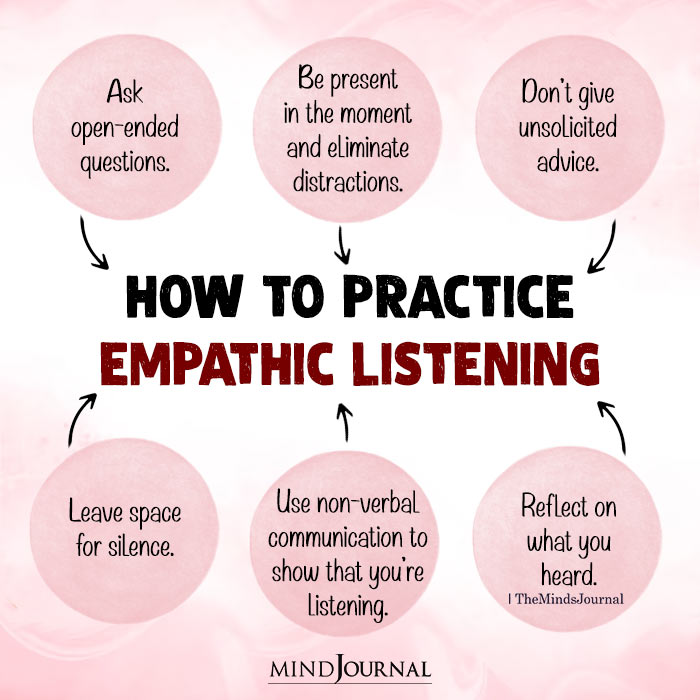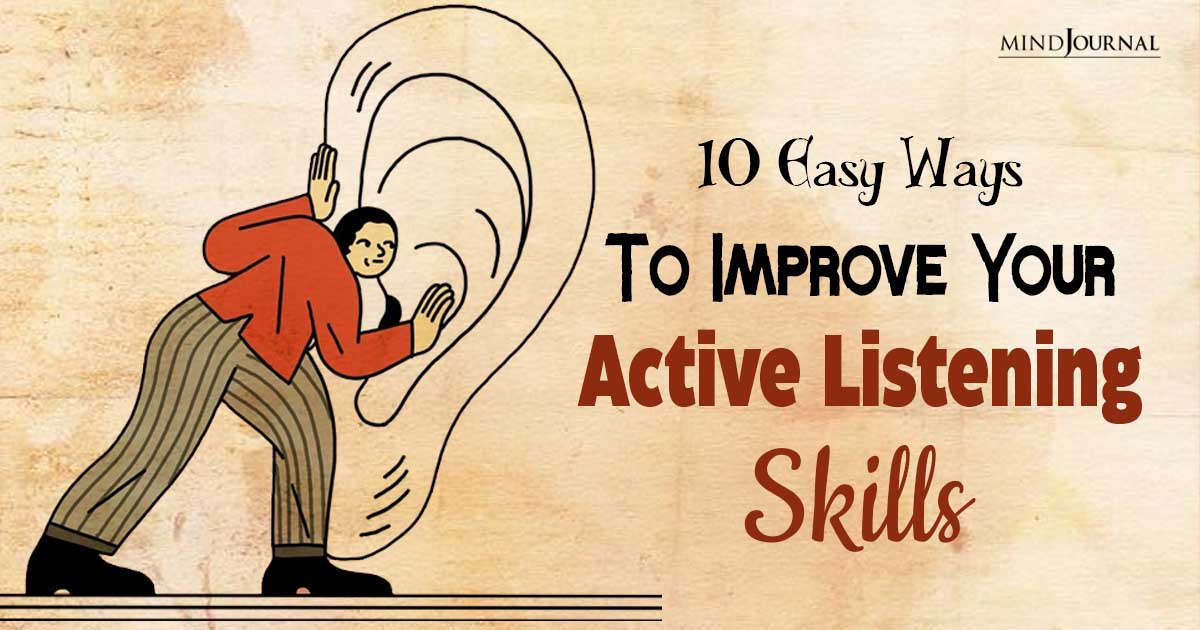Do you ever find yourself zoning out in a conversation, and not really paying any attention to what the other person is saying? You are not alone. However improving your active listening skills can transform mundane conversations to meaningful ones. Explore 10 ways on how to improve your active listening skills.
KEY POINTS
- Active listening is a critical tool for building deeper relationship of all kinds.
- There are steps you can take to improve this critical skill.
- Patient listening helps speakers give voice to their vulnerabilities.
People are routinely advised to be their authentic selves and show their vulnerability. They are told they are in a safe space and there will not be retribution for speaking up. When they finally get the courage to do so, their conversation partner appears not to be listening. They certainly aren’t hearing what is being said. Our words and actions are not aligned.
Active listening is not just a communication technique for the C-suite, it is a valid and critical conversational tool that is integral to building and solidifying solid relationships and getting a deeper understanding of those around you.
Active listening is the secret sauce to take you from being a mediocre listener to a rock-star communicator. Here are ten ways to improve your active listening skills.
Related: How To Be A Better Listener With The 5 Levels of Listening
How To Improve Your Active Listening Skills? 10 Easy Ways To Be A Better Listener
1. Give your full and undivided attention.
Put down and silence your phone and look away from your screen. Focus on the speaker, maintaining eye contact and minimizing distractions.
2. Be present.
Stay in the moment and try your best to avoid letting your mind wander. When it does, notice as such, and recalibrate. Focus on the speaker’s words and nonverbal cues.

3. Avoid interrupting.
Nobody likes to be interrupted. Have some patience and allow the speaker to express their thoughts without stopping them or jumping to conclusions.
4. Show empathy.
Put yourself in the speaker’s shoes and respond with compassion. Try to understand their perspective and emotions. Consider what they are thinking and feeling.
5. Employ nonverbal cues.
Use open body language by unfolding your arms and legs. Nod to show agreement, and use facial expressions to demonstrate that you are engaged and actively listening.
Related: 3 Keys To Developing Empathy: How To Be The Best Listener Ever
6. Reflect and paraphrase.
Show that you are paying attention and understood what the speaker is saying by summarizing what they say. Consider a phrase such as, “So what I am hearing is…” This shows that you are actively processing their words.
7. Ask clarifying questions.
Go deeper on what they share. Seek clarification on any unclear points that are abstract or require further elaboration. This demonstrates your interest and active involvement in the conversation beyond the initial exchange of words.
8. Avoid judgment.
People fear sharing because they don’t want to be judged. Instead, approach the conversation with an open mind and seek to understand the speaker’s perspective.

9. Be patient.
Being vulnerable is hard and doesn’t come easily to many. Allow the speaker to express themselves, and avoid rushing or cutting them off. By no means should you be looking at your watch while they speak.
10. Practice active silence.
Silence can be golden. Give the speaker time to gather their thoughts and articulate their words before responding. Sometimes, silence is a strategic pause and encourages further sharing.
By improving the invaluable skill of actively listening, you are working to develop stronger relationships and deeper connections.
Related: How To Improve Communication Skills: 5 Proven Techniques
The ability to truly hear and understand others has the powerful ability to transform your personal and professional life, increase your likelihood of collaboration, trust, and respect. Maintain curiosity and engagement and watch as your true relationships begin to unfold.
Written By Ruth Gotian Originally Appeared On Psychology Today










Leave a Reply